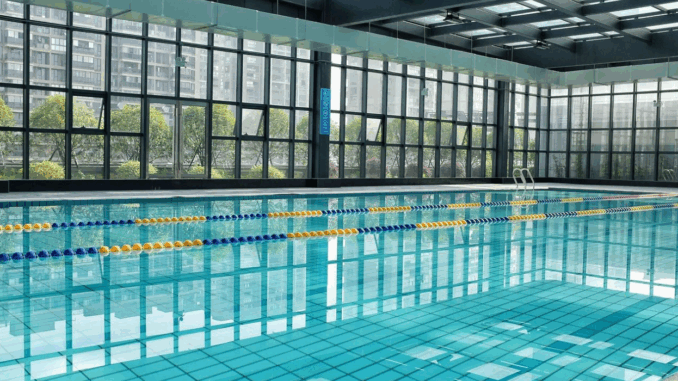
BY ROSSI SEALEY
Seven drownings occurred on NYC beaches in the summer of 2024, making it the highest number since 2019. In response the NYC Council Committee on Education passed a resolution on October 29 calling on the state to promote water safety training in schools.
The Council’s Resolution 0501-2024 urges the New York State legislature and the Governor to pass A.1080, requiring school districts to provide water safety information to parents and to teach water safety to K-12 students.
“I’m dedicated to ensuring that our children and New Yorkers are safe while swimming in pools and our beaches,” said the resolution’s primary sponsor, NYC Councilmember Shekar Krishnan, who is also Chair of the Council’s Committee on Parks and Recreation, during the meeting. “One death due to drowning is too much.”
In the proposed state legislative bill, 2025-A1080, the school districts would allow and encourage “age-appropriate” water safety instruction. The school districts are required to send online water safety materials that are outlined in regulations by the Commissioner with the Department of Health to parents of the students annually.
Some of the topics covered in the curriculum are the usage of flotation devices, the importance of cardiopulmonary resuscitation (CPR), recognizing water dangers like rip currents, teaching swim lessons, respecting pool barriers, following safe behaviors, and lifeguard supervision.
“I think this is an excellent thing,” said Brian Jensen, Brooklyn College Aquatics Director and Head Swimming and Diving Coach. “One, it can teach people to get over a fear, two, you’re developing life skills that can benefit you. Three, it might be a skill that you can turn into a job that might turn into a career.”
Drownings can occur because water safety education is not accessible to everyone.
“It is a socioeconomic issue, meaning if you don’t have the resources and funds to pay for it, you don’t get it,” said Kaitlin Krause, Founder & Executive Director of Rising Tide Effect. “So putting it in the schools is the most efficient and effective way to get it to everyone regardless of their background.”
Rising Tide Effect is a non-profit organization that assists underserved communities with free swimming lessons, water safety education, and career training.
Naomie Grandpierre, Brooklyn College student says, “When I was in high school, I was never educated on water safety or had any swimming experience.” She notes limited pool access and low interest in swimming, highlighting a need for more education.
Lifeguard shortages have been driven by factors like COVID-19, stricter certification tests, declining interest in swimming, and low salaries.
Brooklyn College is also in the movement to address water safety issues by providing a swimming course to college students. They are collaborating and renting out their pool with for-profit and nonprofit organizations like the Inclusive Community Wellness(ICW) for children and adults to learn how to swim. The ICW offers free swim lessons while providing wellness programs for physical and mental health.
NYC Parks officials and lifeguard unions are also taking action to boost water safety; they’re increasing lifeguard salaries to $22 per hour, offering $1000 bonuses for returning guards, and making certification tests more accessible. NYC parks will also provide personalized training programs, like the Swim Prep Program, to attract new lifeguards.
Rising Tide Effect’s Krause stresses that water safety education should be a classroom staple, covering not just pool and beach safety, but also flood preparedness, to equip families with life-saving knowledge. “So we can become, as we call it in Rising Tide, water wise individuals,” said Krause.
